‘We need to focus our efforts and money on supporting our children and look after them.’
Muhammed, Khallet Al Ayadeh
Imagine coming home from school and your house is gone. This is what happened to 7-year-old Ameera* in November 2022. She had gone to school as normal that morning and when she returned at 2pm, her house and her neighbours house was a pile of rubble.
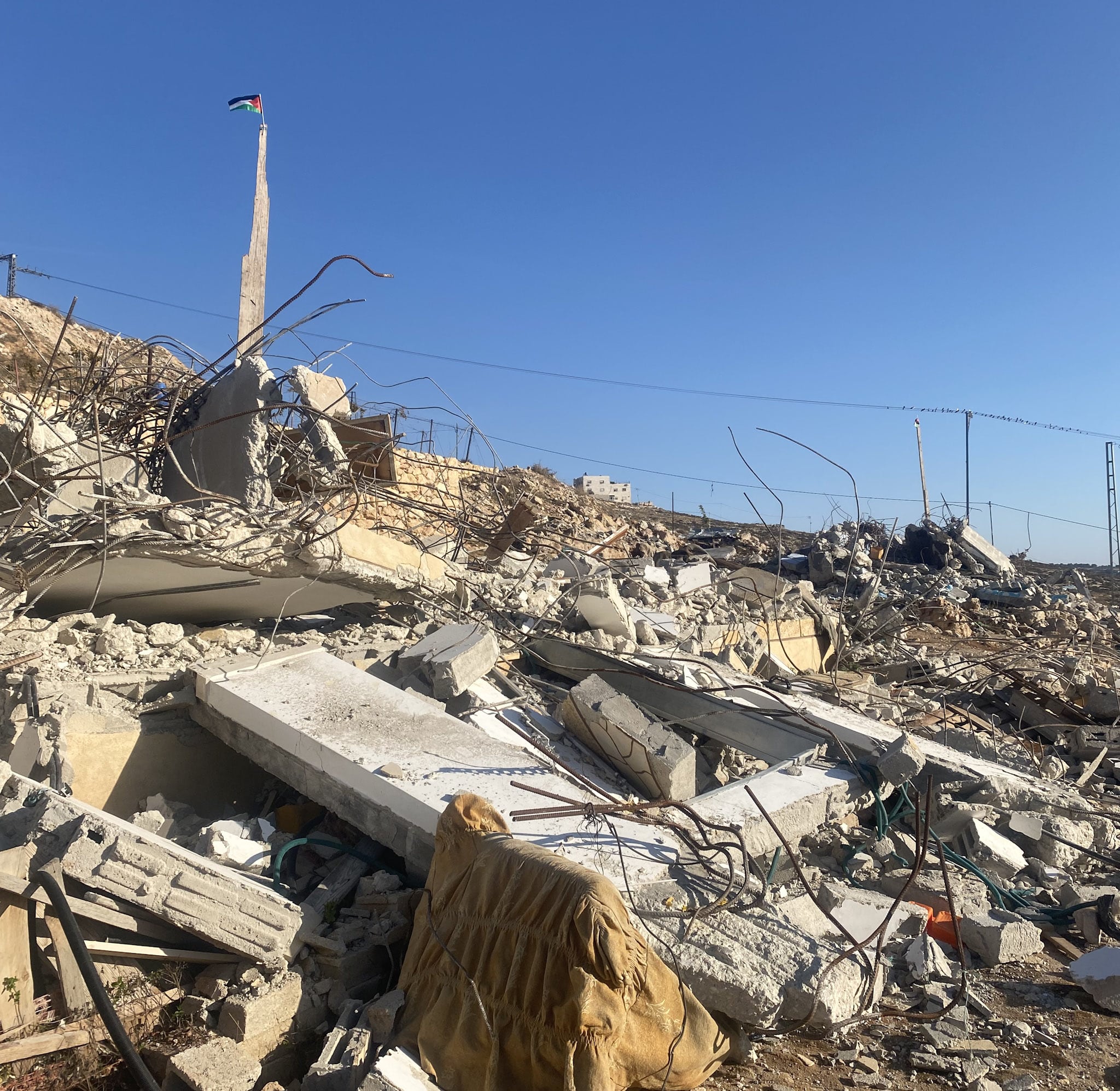
A Palestinian flag above the rubble
Ameera’s family live in Khallet Al Ayadeh, a community just outside of Hebron in the occupied West Bank. The community is perched on the edge of the city and enjoys views of a golden topped mosque and farmland which has been cultivated by the community for as long as they can remember.
Ameera lived with her mum, dad and five siblings. They lived next door to her aunt and uncle who also have six children. Within 45 minutes, three diggers and one bulldozer had destroyed both houses, reducing them to rubble. Only the kitchen sink was left standing, still full of unwashed dishes. The demolition left 18 people homeless immediately. There wasn’t time for Ameera’s father, Muhammed, to notify his oldest children who were at school.
House demolitions like this are not uncommon in the West Bank. The United Nations Office for the Coordination of Humanitarian Affairs (UNOCHA) reported that in 2022, the Israeli authorities carried out 953 demolitions or seizures of Palestinian properties, displacing 1,031 people.
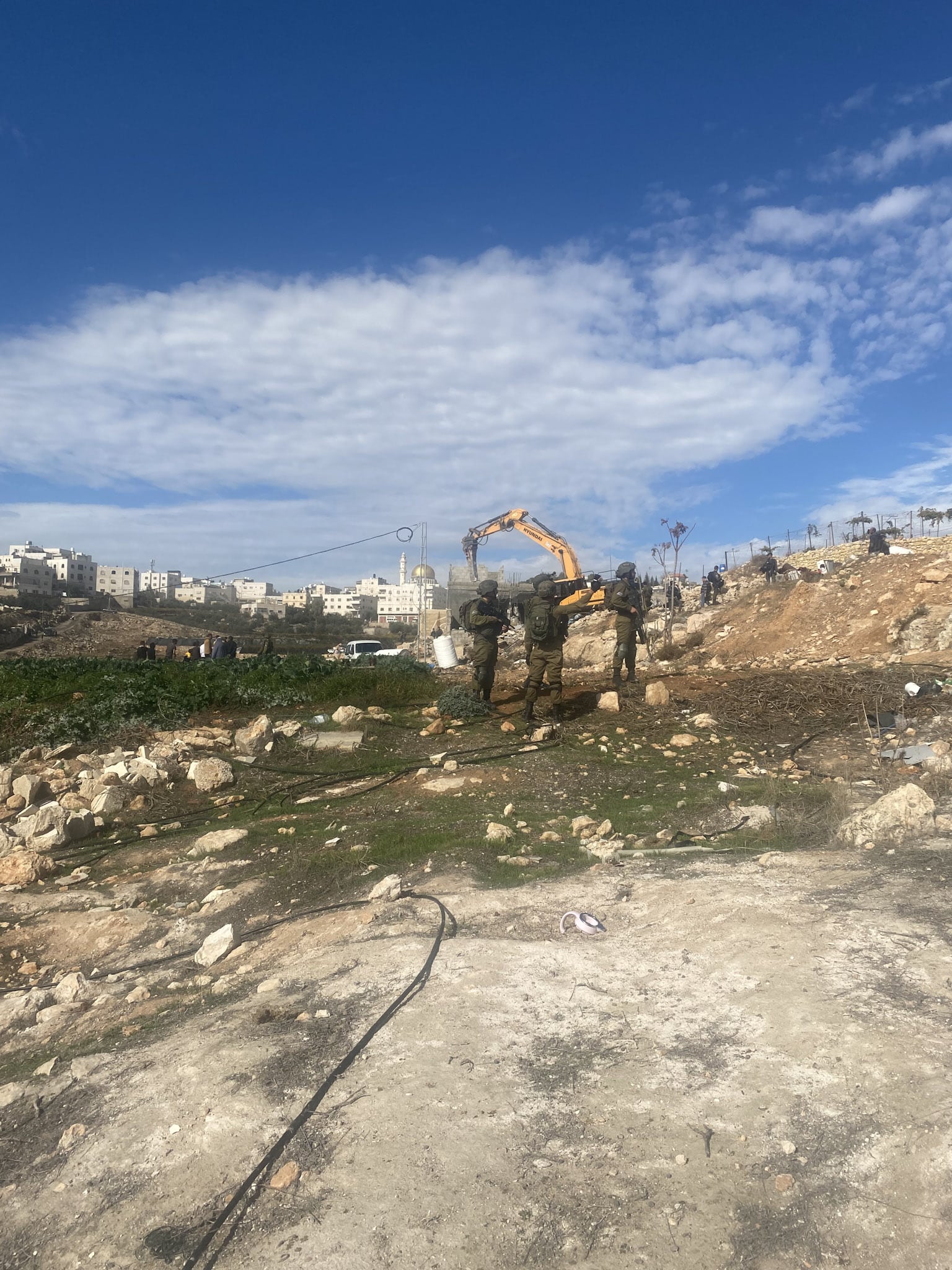
Soldiers seal off the demolition site
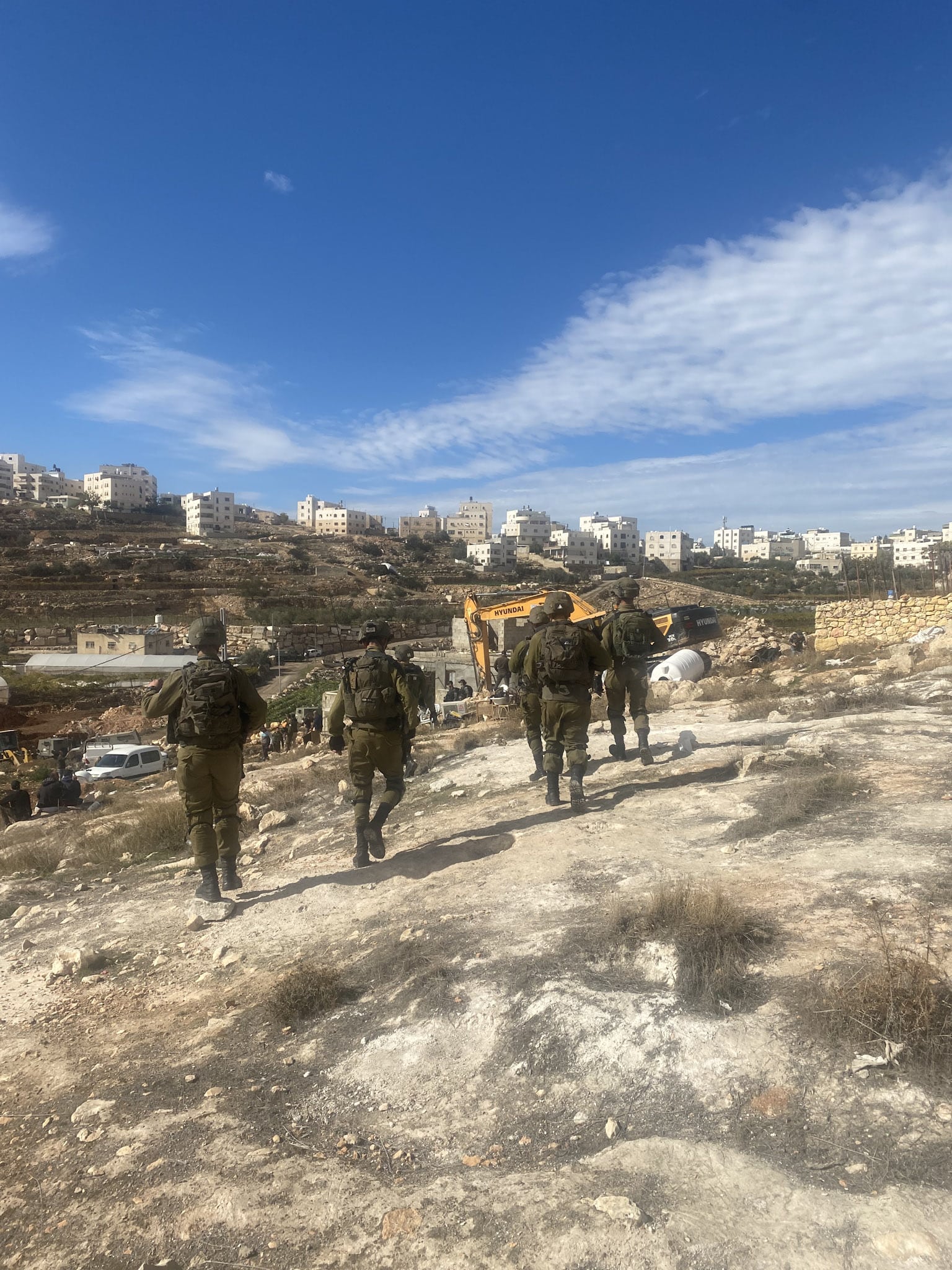
Soldiers watching the demolition
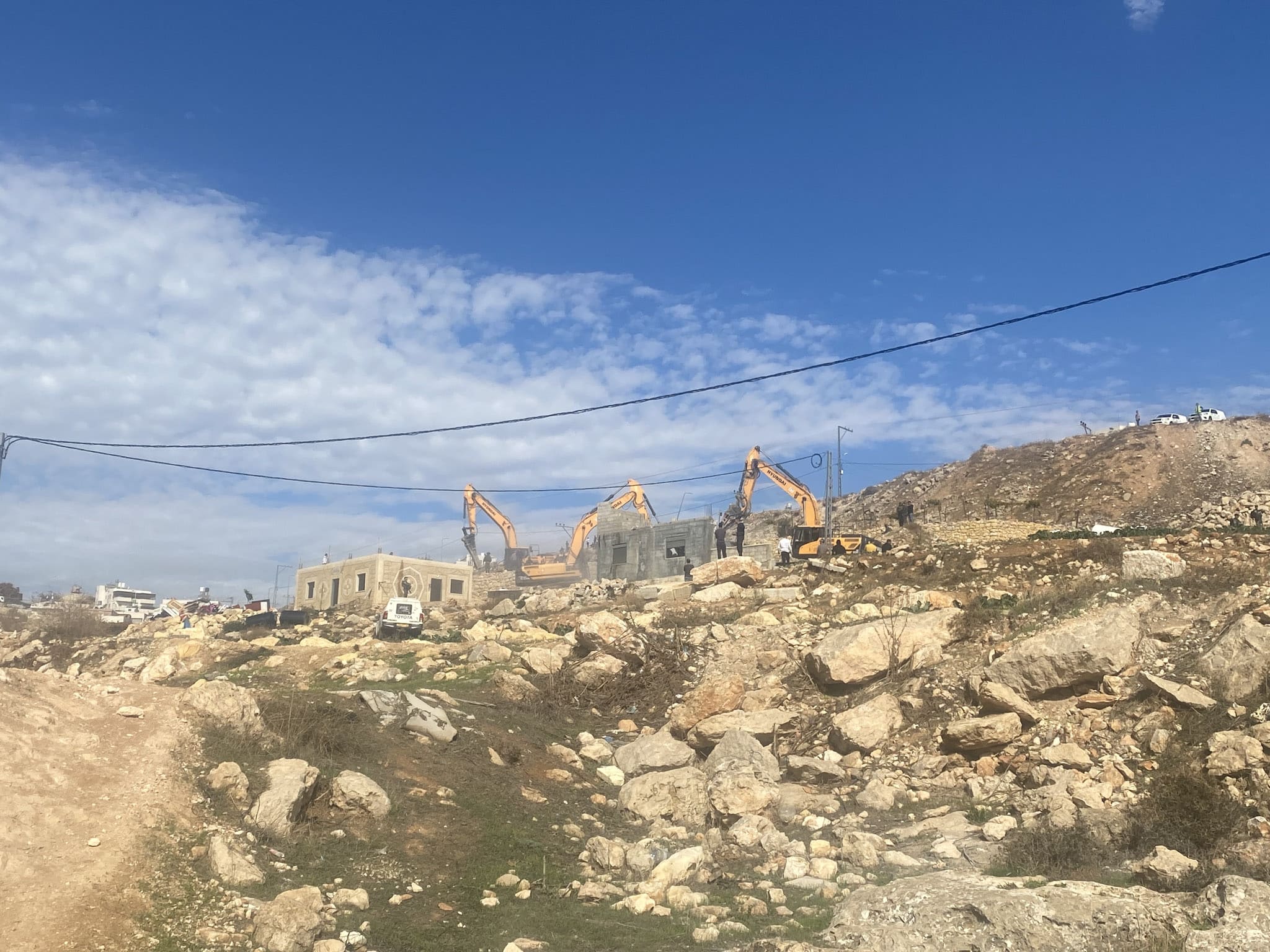
Israeli Security Forces demolishing Mohammeds & brothers home
‘State land’
During Britain’s colonial rule over Palestine in the early 1900s, a land survey was carried out in the West Bank and communities started to receive ownership documents for their land. However, the full survey wasn’t completed and by the Six Day War in 1967, when Israel took military control of the West Bank, only a third of the land had been registered.
Israel has since appropriated more than fifty percent of Palestinian land in the West Bank, a large proportion of which has been reallocated to settlements – villages, towns and cities built exclusively for Jewish-Israeli citizens. One of the most common tools for this is to reclassify Palestinian land as ‘state land’. Palestinians who have have lived on the land for generations but are without their registration documents are especially vulnerable to this, and have little evidence to challenge the repossession or demolition of their homes in the already unfavourable Israeli courts.
For Muhammed, Ameera and their family the demolition came as they were in the middle of a legal battle over the land. Muhammed purchased the land six years ago, and once the sale had been processed he discovered the land had been designated by Israel as ‘state land’.
‘In many cases, Palestinian residents were unaware that their land was registered in the name of the state, and by the time they discovered this fact, it was too late to appeal. The burden of proof always rests with the Palestinian claiming ownership of the land. Even if he meets this burden, the land may still be registered in the name of the state on the grounds that it was transferred to the settlement “in good faith.”‘
Muhammed and his brother have spent thousands of dollars on the court case to prove their ownership and despite the ongoing legal process their house was demolished with little notice. Their houses were next to Kiryat Arba, the largest illegal Israeli settlement in Hebron, home to over 7,000 Israeli settlers. Muhammed was told the land had been designated for the industrial expansion of Kiryat Arba, to allow them to build more factories. However, he was skeptical that this is even the plan.
‘They demolished houses here a few years ago and there is still no factory being built. Why didn’t the army come at the beginning when we started building to tell me to stop. Why did they let me live here for five years?’
Muhammed, Khallet Al Ayadeh
Muhammed and his family now face an uncertain future. Local organisations found them a temporary house in the same area so his children could continue at school. However, this was a four-month solution and they will soon need to move on. Much of their money has been spent on a court case which proved fruitless.
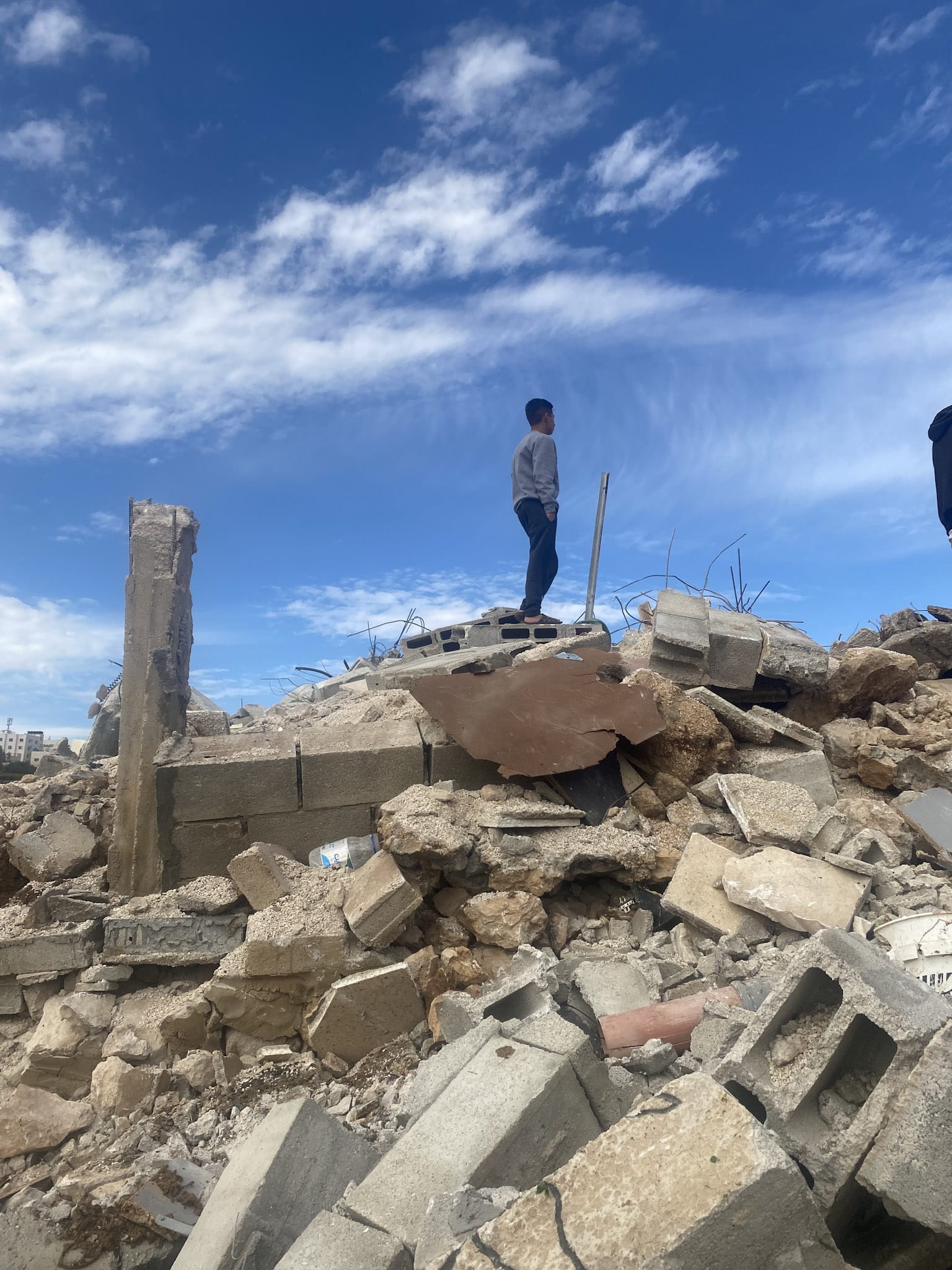
Boy stands on top of rubble of his home
‘[The Israeli state] treats the West Bank as if it were part of its sovereign territory: grabbing land, exploiting natural resources for its own needs and building permanent settlements designated for Israelis only. At the same time, for the past fifty years, Palestinian West Bank residents have been living under rigid military rule that primarily serves the interests of the State of Israel and Israeli settlers.’
Following the demolition, and after the media and Israeli authorities had left, we watched the community come together. Two large trucks turned up and people helped the family load what belongings they could save into the back. Children from the two families ran about, taking it in turns to help lift doorframes, heaters and even the kitchen sink into the back to be salvaged for another house in the future. Muhammed produced coffee, juice and sandwiches to offer the helpers.
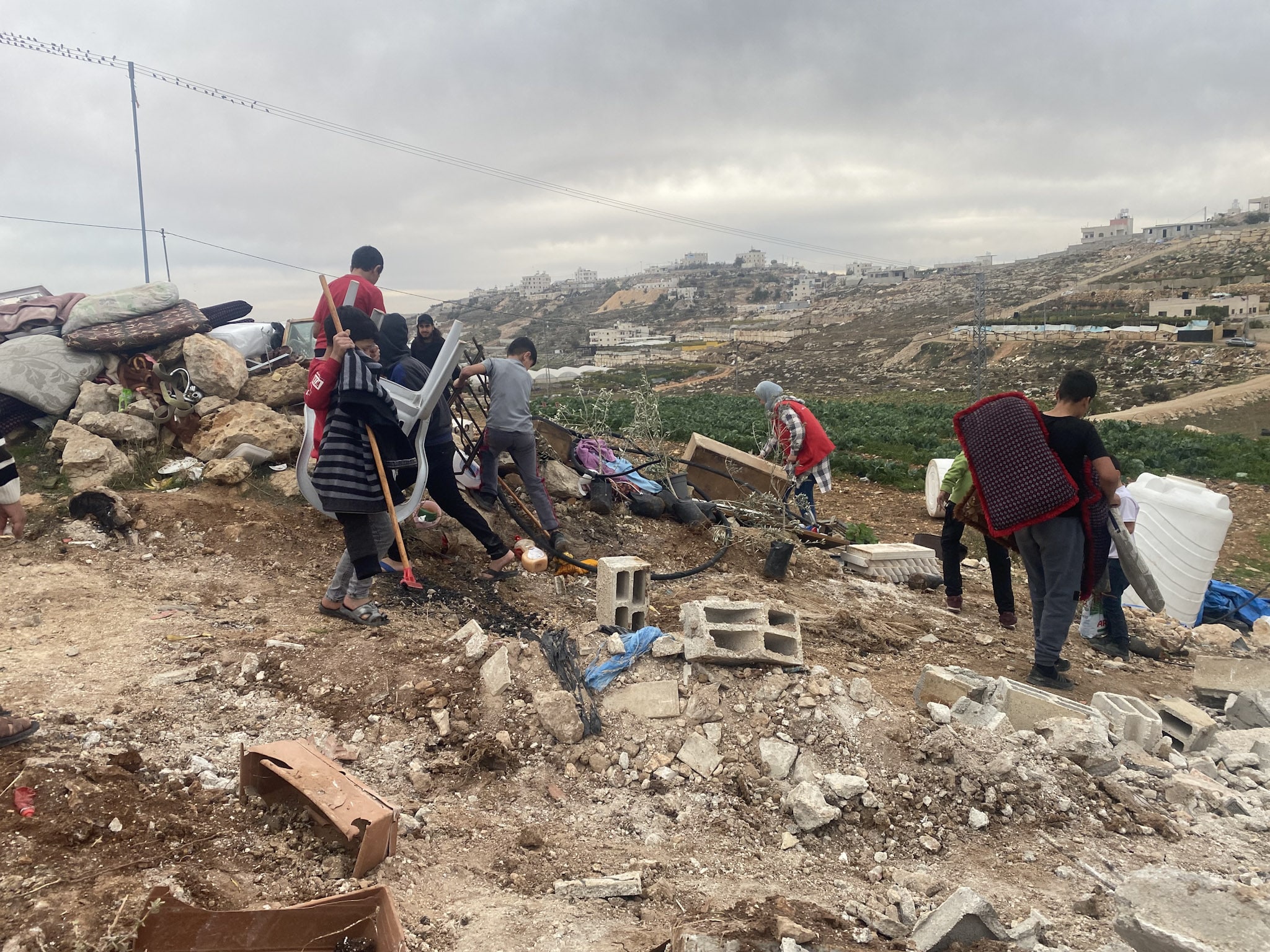
Children help carry salvageable items to a truck following demolition
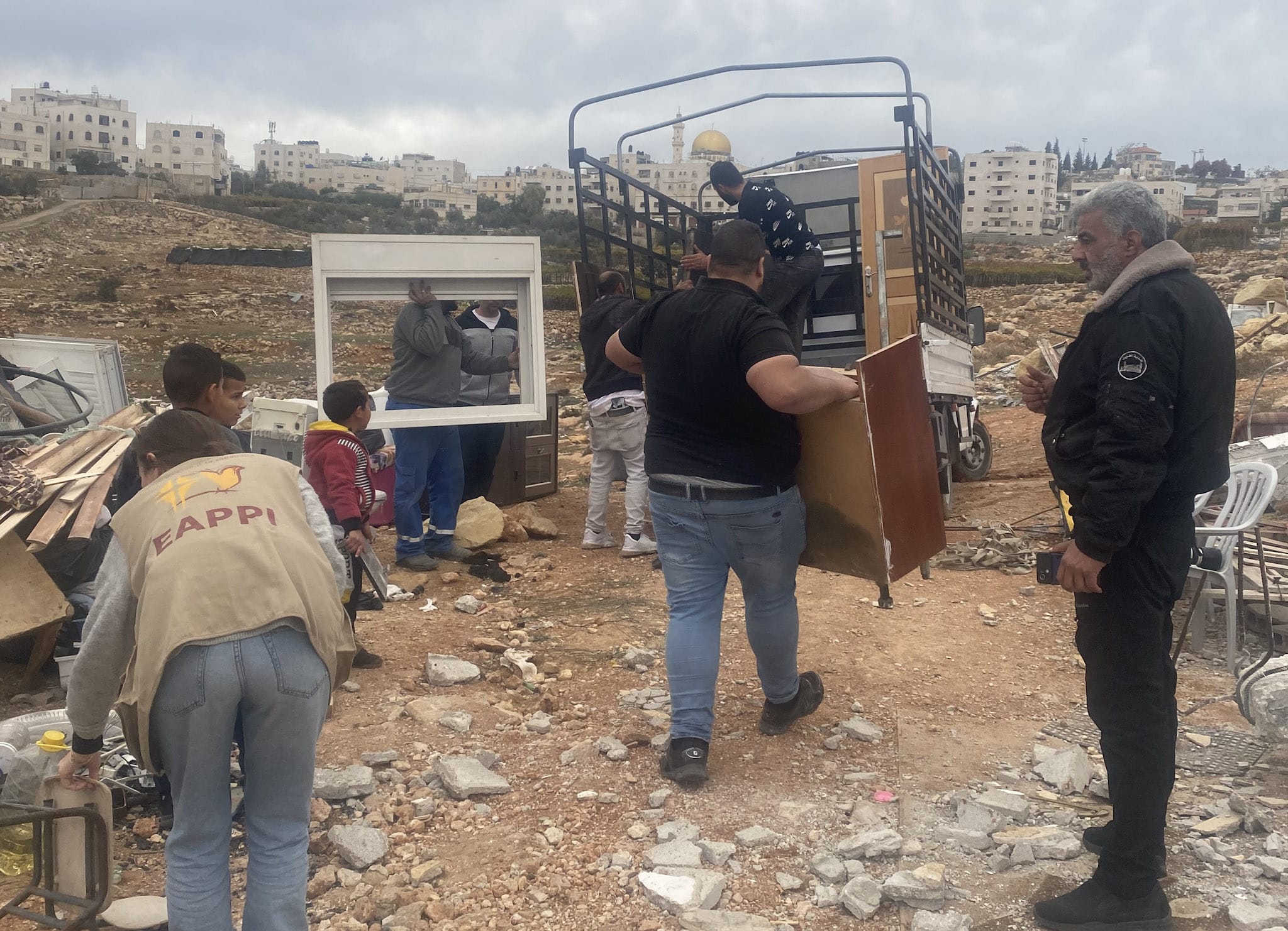
Local community members help to load a truck following the demolition
Following the formation of Israel’s new ultranationalist coalition government, there has been a stark increase in house demolitions in the West Bank, including East Jerusalem. In January 2023 alone, Israeli authorities have demolished 132 structures, resulting in 174 Palestinians being displaced, a 135% increase compared to the same period in 2022. The new Minister for National Secuity, Itarmar Ben-Gvir, has pledged to intensify the demolition of Palestinian homes, as well as promising to strengthen settlements in the West Bank, in violation of international law.
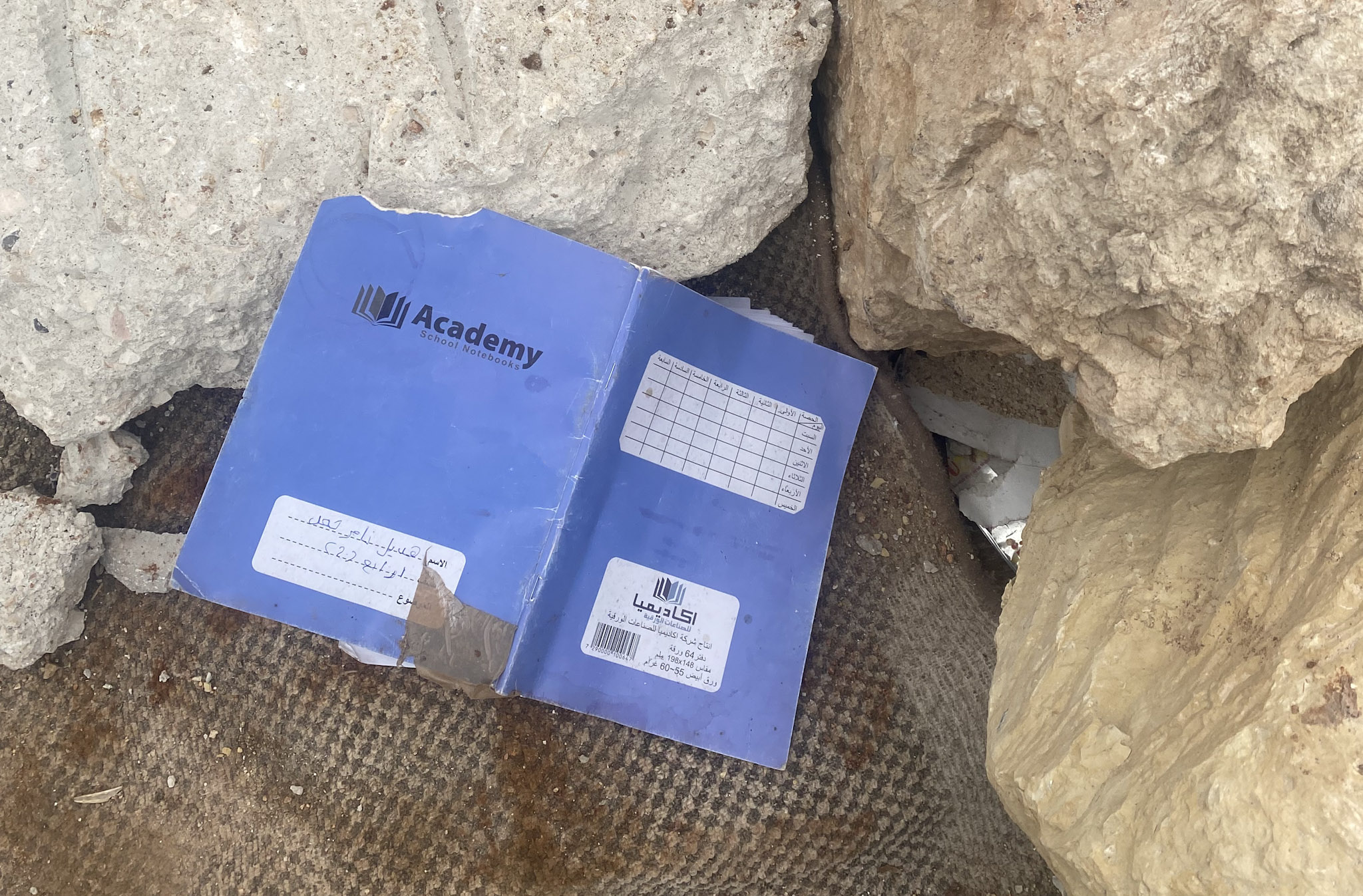
Ameera’s school book discarded following the demolition
The United Nations relief and works agency for Palestinian refugees in the near east (UNRWA) says ‘Many of the people affected (by demolitions) already live in poverty, and demolitions are a leading cause of their ongoing displacement and dispossession in the West Bank. The impact of home demolitions on children can be particularly devastating. Many children affected by demolitions show signs of post-traumatic stress disorder, depression and anxiety. Their academic achievement often suffers.’
Take action!
-
Palestinian children in the occupied West Bank face serious violations of their rights, a trend which is set to continue with the recent swearing in of Israels most right wing government to date. Follow and support the work of Defence for Children International Palestine for the latest campaigns and actions.
-
In Ireland? The European Union considers illegal settlements in occupied territories as an obstacle to international peace and stability, yet continues to trade with them. Sign the petition to call upon the EU to #stoptradewithsettlements.
-
Learn about home demolitions directly from Palestinian and Israeli human rights activists. The Israeli Committee Against House Demolitions (ICAHD) run regular political tours in the occupied West Bank and Israel, ranging from half days tours to more in-depth study tours. Learn about their work and consider a visit.

